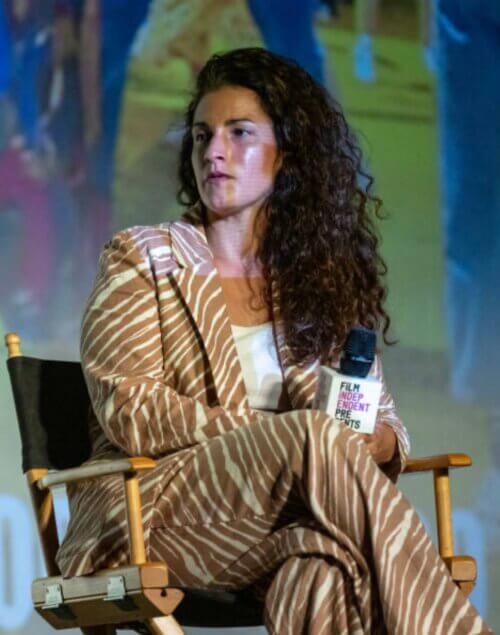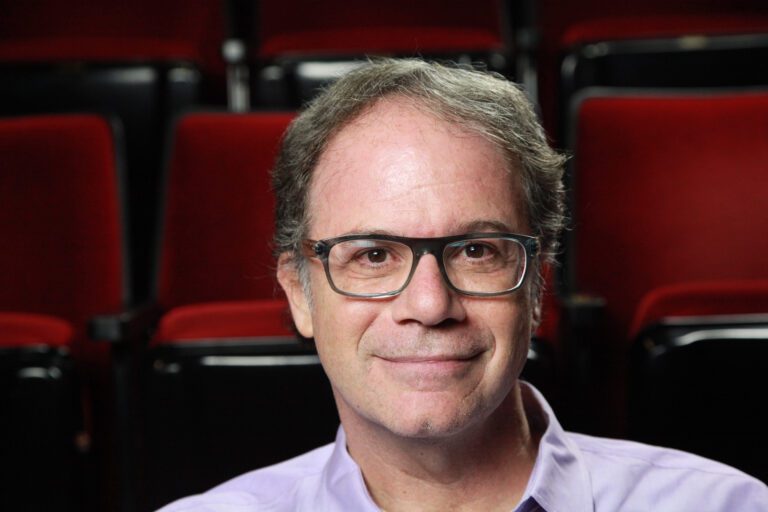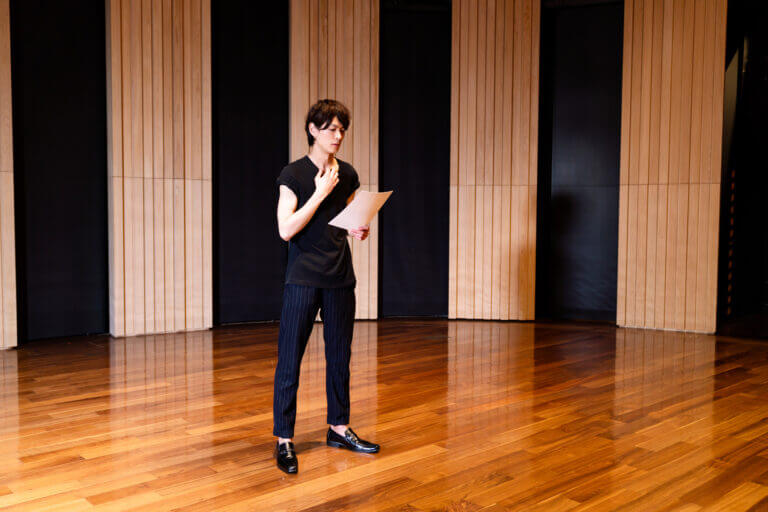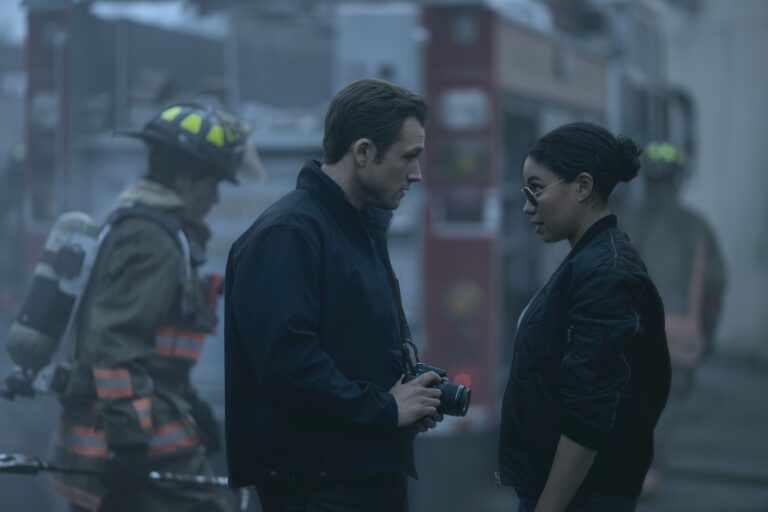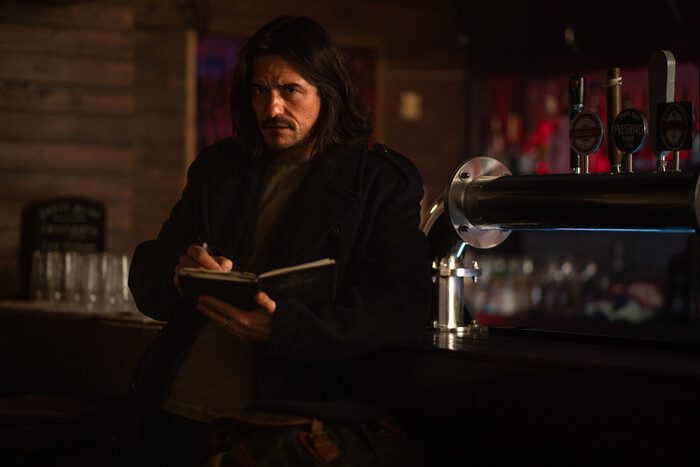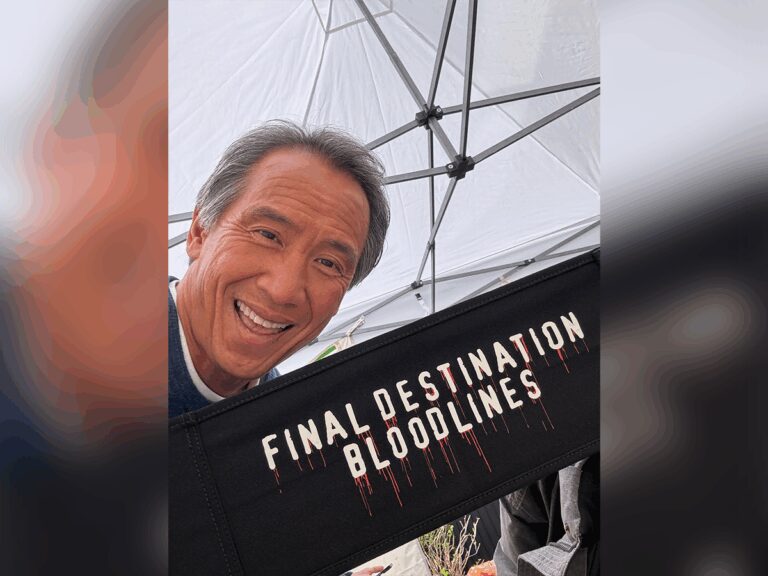The surest way to see if someone is good at their job is if they keep getting hired over and over again by the people they’ve worked with. If that’s the standard, then Lindsey Weissmueller is an exceptional casting director. For more than a decade now, her name has appeared in acclaimed films like Sleight, Searching, Plus One, Missing and Pinball: The Man Who Saved the Game, as well as the work of various producers and directors who make her their first call.
She’s also a prime example of how the industry has changed in a post-Covid age. After years in Los Angeles, she and her husband relocated with their three young children to Jacksonville, Florida, where her career continues to thrive. In Florida. Seriously. Her latest film, the comedy Sacramento, which stars Kristen Stewart, Rosalind Chao, Maya Erskine, Michael Cera and Michael Angarano (who also co-wrote and directed), premiered June 8 at the Tribeca Film Festival. She spoke to us from her home office.
How did you get started in casting?
I did an internship when I was in college. I internship interned for FMW Casting, which was Barbara Fiorentino, Rebecca Mangieri and Wendy Weidman. I loved it. I thought it was so cool, and I thought I could be good at it one day.
It’s not something that you just walk into and are good at, because the job is so multifaceted, but I thought my skills kind of spoke to all the different layers of the job. When I moved to LA after graduating college, I got a job the first day that I was in LA at a company that cast made for TV movies. I haven’t stopped since.
Did you have any concept of casting before you had the internship or was it one of those things where you are looking for something in entertainment and this was open to you?
I was looking for something in entertainment and this appealed to me. I also did an internship for a reality TV show at the same time, and I quickly stopped doing that and started going to the casting internship every day because I thought it was so fun, and I liked the people. I remember just thinking I couldn’t believe people got paid to do this, and that is how I wanted to feel about my career. I didn’t know I could feel that way about a job, and I have felt that way about my job, on most days, ever since.
I continue to be surprised by how often I hear some version of, “You know, I didn’t know much about casting, but I got an internship and I completely fell in love with it.” I have talked to dozens of casting directors over the last year, and in every single case —every single one— there is a moment when you realize this is exactly what you want to be doing.
Yeah, that’s true, and it was very early on for me. The internship. You can see what everybody on a film set or TV show does because you’re there at the beginning as all the departments are being set up, and you have contact with a lot of them and the people who make the schedules and who get the financing.
I do not enjoy being on set, but I enjoy being a part of the creative process. Just like a lot of people, I would watch movies and want to know who those actors are. I would pay attention to who the casting director was, and I remember seeing casting directors’ names come up and thinking, “Oh, that one cast this other movie that I liked,” and making those connections from very early on.
I always thought it could be something that I would be interested in, I just wasn’t sure if I would be good at it. [At least] until I started getting into it and seeing that the skill sets that I would utilize in the job were things that I could imagine myself developing to the point of being a great casting director. I’m still working on that.
Looking at your filmography, it’s a pretty impressive mix of television and independent film.
My goal is always to work on films that I would like to watch if I weren’t working on them. That is how I approach every job.
Now, I might work on a film that I wouldn’t otherwise watch if it’s somebody I work with all the time, and I love their sensibility and enjoy working with them. If it’s a quality script that I know people will be interested in, [I might do it]. Not every movie will meet that standard, but then, I’m also pretty picky about what I want to watch. Not in a highbrow way, but in a “I like what I like,” kind of way.
The new movie Sacramento falls under that category.
It certainly does. Also, I had worked with Maya Erskine in a movie called Plus One a few years earlier. Michael Angarano, who is married to Maya, was directing. I had met him at a screening, so there was that connection.
The producer was somebody I’ve done probably 15 movies with before, so the decision was very easy. I loved the project, and it was something that I would want to watch.
That’s another thing that is clear from your work, is that you don’t stick to any particular genre.
No, I don’t typically stay in one lane because I follow the people. I will work on a crazy gory horror film because it’s somebody that I want to work with, even though I don’t typically watch a movie like that. And if it’s somebody I want to work with, I’m more in tune with their vision and their sensibility, and I can get behind it in a way that I may not otherwise be able to if I wasn’t connected with the person.
I’m like the agent for the film when I’m the casting director. I just have to be able to take the film, take the director, take the script, and present it to agents and managers in a way that is going to make them understand that their clients should do the movie. If I cannot do that, I’m not going to do a good job, and I will not do the movie.
What piece of advice or wisdom would you give to an actor coming to audition for you?
One thing I’ve always prioritized telling actors is to take ownership of your approach to the character. Find a sense of comfort in what you’re bringing in, comfort and competence, and lean into that rather than leaning into what you think somebody wants to see.
Don’t do what you think I want you to do, lean into what makes you uniquely connected and right for the character. I feel like you can always tell the difference. Be in that category that’s finding your comfort and competence and truth in the character, because you’re not going to get the role if you don’t have that.
Did you know that Casting Networks Premium memberships now include access to health and well-being benefits and discounts? Click here to learn more about Thrive!
You may also like:
